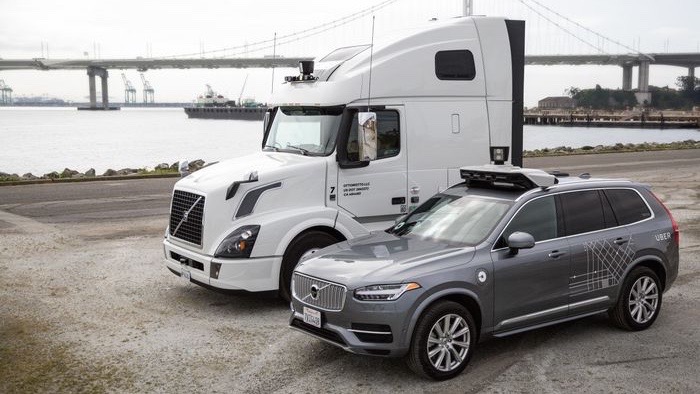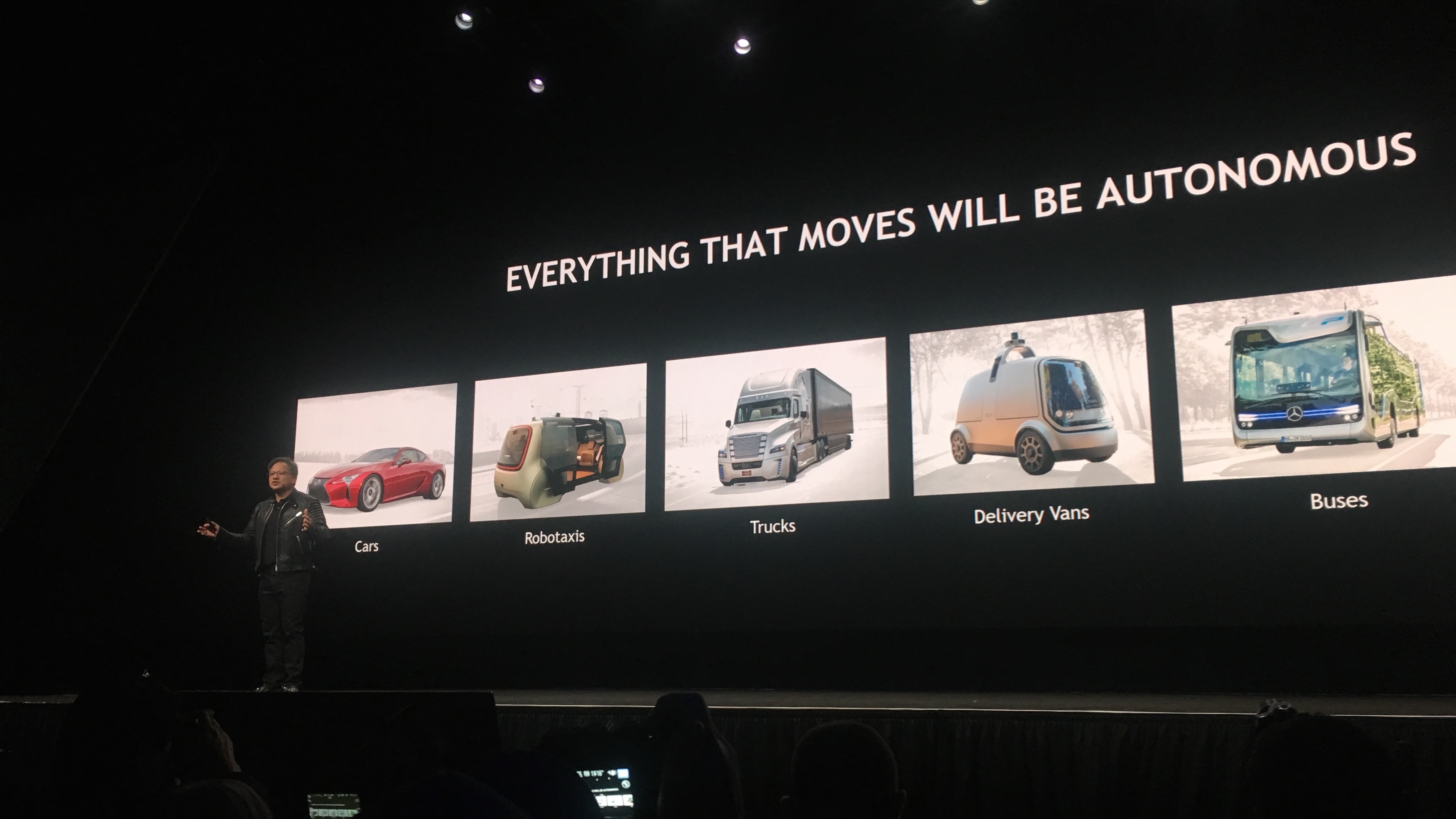Nvidia suspends self-driving car tests as it announces a new virtual testing system
Nvidia's self-driving car tests temporarily halted

Nvidia is temporarily suspending its self-driving car tests on public roads worldwide.
The company best known for its powerful graphics cards has in recent years waded into the self-driving car waters, and it currently counts over 370 partners in the space.
But following a fatal accident last week in which an Uber self-driving car struck and killed a pedestrian while in autonomous driving mode, Nvidia is suspending its testing.
"The accident was tragic. It's a reminder of how difficult [self-driving car] technology is and that it needs to be approached with extreme caution and the best safety technologies," Nvidia said in a statement.
"This tragedy is exactly why we've committed ourselves to perfecting this life-saving technology. Ultimately [autonomous vehicles] will be far safer than human drivers, so this important work needs to continue. We are temporarily suspending the testing of our self-driving cars on public roads to learn from the Uber incident. Our global fleet of manually driven data collection vehicles continue to operate."
The data collection vehicles are cars in the traditional sense; a driver is at the wheel controlling the vehicle while an autonomous sensor suite collects data, according to TechCrunch. News of Nvidia's self-driving car testing suspension was first reported by Reuters.
Speaking at the GTC 2018 conference in San Jose, California, Nvidia CEO Jensen Huang acknowledged the Uber fatality, noting that while autonomy is where the transportation industry is headed, "Safety is the single most important thing."
Get daily insight, inspiration and deals in your inbox
Sign up for breaking news, reviews, opinion, top tech deals, and more.
Nvidia announced in January that Uber had selected Nvidia technology to power its self-driving car AI, though Nvidia computing tech was already present in Uber's first fleet of Volvo XC90 SUVs.
Virtual testing
At the same time it's announcing the cessation of real-world testing, Nvidia also unveiled a new system for testing self-driving cars, one that takes place in virtual rather than real-world environments.
Nvidia DRIVE Constellation is a cloud-based computing platform that will test driving scenarios using photo-realistic simulations.
The system runs on two servers. The first server powers the Nvidia DRIVE Sim, a software set that emulates a self-driving car's various sensors, including its cameras, lidar and radar.
The second server houses the Nvidia DRIVE Pegasus AI, which will process the gathered data as if it's coming from sensors in a self-driving car on the road.
The testing may be taking place in a virtual environment, but it's happening on the same hardware and software that would be found in a self-driving car, Nvidia's Danny Shapiro explained in a briefing.

The simulator is constantly validating information coming from the DRIVE Pegasus AI, while the DRIVE Sim can create virtual driving scenarios ranging from rain to glare to limited night vision.
Nvidia says that in addition to being a safer way to test the technology for self-driving cars, the DRIVE Constellation also allows for faster testing; collecting data from billions of miles on virtual roads and innumerable scenarios in much less time than self-driving cars could gather on the road.
It's not yet clear to what degree Nvidia will rely on virtual testing versus real-world testing once its public driving tests resume.
New solution?
Nvidia's announcements come at a pivotal time for the self-driving car industry.
Less than 10 days ago, an Uber self-driving car struck and killed a pedestrian who was walking outside of a crosswalk in Tempe, Arizona. The car was in autonomous mode when it struck the victim, and it is the first known pedestrian death involving a self-driving car.
Following the accident, Uber suspended all self-driving car tests in North America. Earlier today, Arizona Governor Doug Ducey suspended Uber's ability to test and operate self-driving cars on public roads in the state.
The accident has called into the question the safety of testing self-driving cars on public roads.
It remains to be seen how effective Nvidia DRIVE Constellation is at putting self-driving cars through the paces and how that testing translates into the real world.
Testing may not involve putting self-driving cars on public streets, with all the safety issues that entails, but virtual environments aren't real ones, no matter how authentic the simulations seem.
Michelle was previously a news editor at TechRadar, leading consumer tech news and reviews. Michelle is now a Content Strategist at Facebook. A versatile, highly effective content writer and skilled editor with a keen eye for detail, Michelle is a collaborative problem solver and covered everything from smartwatches and microprocessors to VR and self-driving cars.
